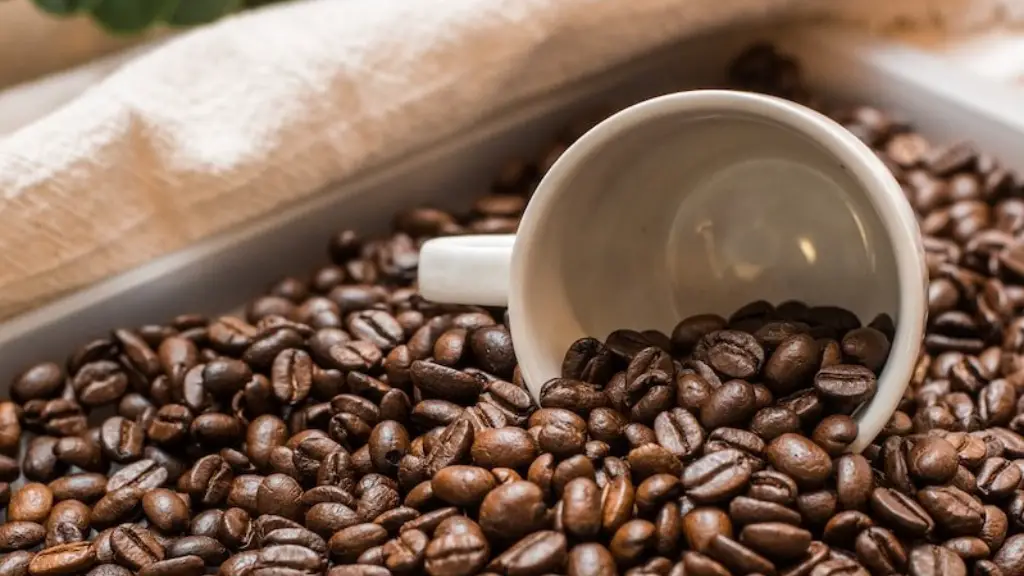Overview
Caffeine is mostly known for its effects on alertness, energy and concentration, but what about its impact on concussion-related symptoms? If you have suffered a concussion, you’re likely wondering if it is safe for you to drink coffee. In this article, we will discuss the potential effects of caffeine consumption following a concussion, as well as analyzing the potential benefits and drawbacks of doing so. We will then explore other aspects of concussion management and explain why it is important to seek medical advice if you have any further questions or concerns.
Risks of Caffeine Consumption after a Concussion
The area of the brain affected by concussion can cause an increased sensitivity to caffeine consumption. This is due to the fact that caffeine is known to have various physiological effects, such as increasing one’s heart rate and blood pressure, as well as leading to potential disruption of sleep. As such, it is important to be mindful of the potential risks associated with consuming caffeine following a concussion.
Headache is one of the most common symptoms of a concussion and it is important that one ensures that caffeine consumption is not likely to exacerbate this symptom. Furthermore, it is also important to consider the potential for caffeine withdrawal symptoms in the event that one chooses to suddenly stop caffeine consumption altogether. It is suggested that those with a concussion should slowly decrease the amount of caffeine they consume to mitigate the potential risks associated with withdrawal.
Potential Benefits of Caffeine Consumption
It is also important to consider the potential benefits of drinking coffee when one has had a concussion. Studies have found that caffeine consumption can be beneficial for concussion-related symptoms such as fatigue, as it can help to improve one’s concentration and alertness. Furthermore, caffeine can help to reduce inflammation in the brain which may lead to a decrease in other symptoms such as headaches.
The World Health Organisation (WHO) recommends limiting caffeine consumption to no more than 400mg a day for adults, which works out to around four cups of coffee. It is important to consider one’s own individual circumstances when determining what amount of caffeine is safe for them to consume.
Other Aspects of Concussion Management
It is also important to consider other aspects of concussion management when drinking caffeine after a concussion. It is advised that those with a suspected concussion should seek medical advice as soon as possible, who will be better placed to diagnose any medical problems and provide advice on the best course of treatment.
In addition, those with a concussion should avoid any physical activity in the first few days and should take regular rest breaks in order to promote healing. Resting is also important in order to ensure that the symptoms of the concussion don’t worsen, as this can lead to serious long-term problems. The WHO also suggests that those with a concussion should avoid using screens for any longer than is necessary in order to give their bodies a chance to recover.
Seeking Medical Advice
It is important to seek medical advice after a concussion as this will ensure that any underlying health concerns are addressed in a timely manner. Furthermore, seeking medical advice will ensure that any advice given is tailored specifically to the individual and their individual situation.
There are various medical professionals that can offer support with concussion management and it is important to contact a health professional that is most suited to one’s individual circumstances. For instance, someone could speak to a neurologist if they have an underlying neurological condition that may be affected by the concussion or a GP if they only have symptoms of a mild concussion.
Knowing When to Seek Further Medical Assistance
It is important to know when to seek further medical assistance for a concussion. Symptoms such as persistent headaches, vomiting, or feelings of dizziness or confusion should be taken seriously and medical advice should be sought if these symptoms persist or worsen. Furthermore, anyone exhibiting signs of memory loss or brain fog should also seek medical assistance, as these can be signs of a more serious problem.
It should also be noted that those with a concussion should not drink alcohol as this could lead to worsening symptoms or even further complications. In addition, prescription drugs should also be avoided, particularly if they are known to be dangerous when taken in conjunction with caffeine.
Conclusion
In conclusion, it is important to consider the risks and potential benefits associated with caffeine consumption after a concussion. Whilst it is generally recommended that caffeine consumption should be moderated following a concussion, it is possible to drink coffee in small quantities when appropriate. However, it is important to be mindful of the additional factors which may influence one’s health following a concussion and it is important to seek medical advice if any further questions or concerns arise.

